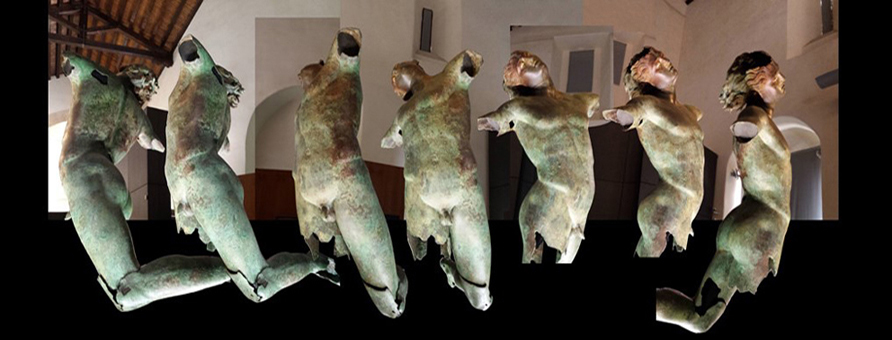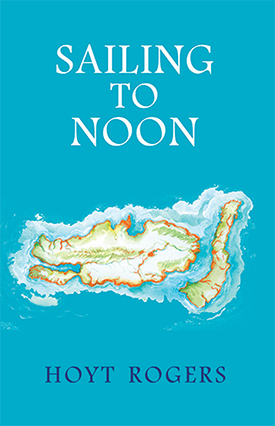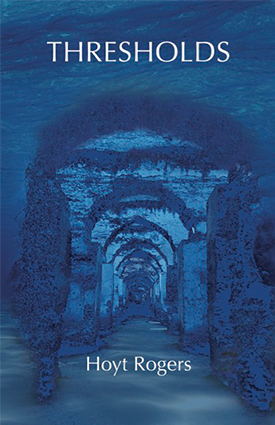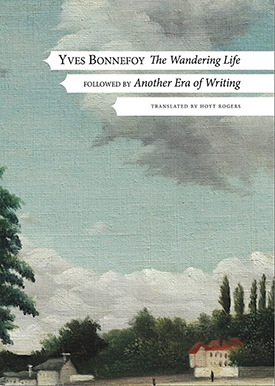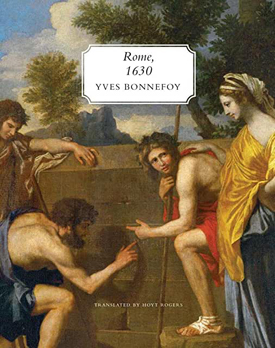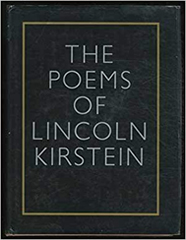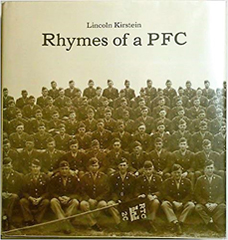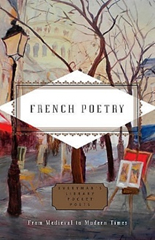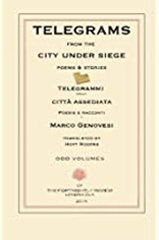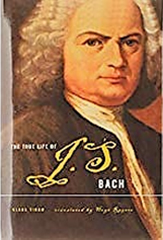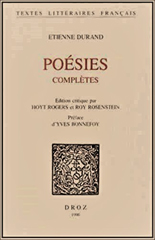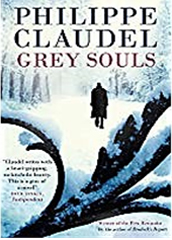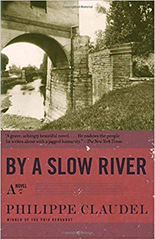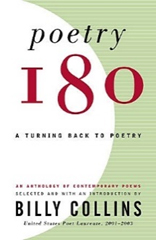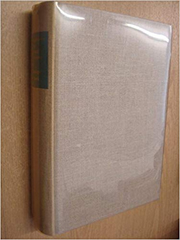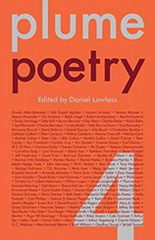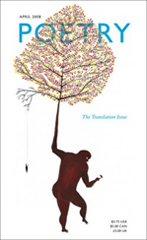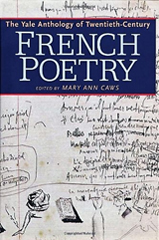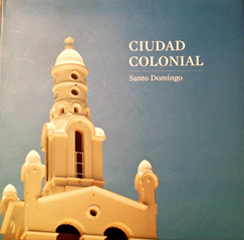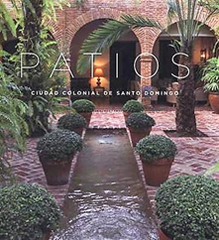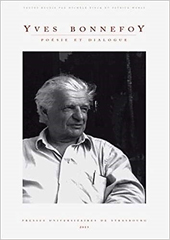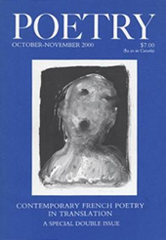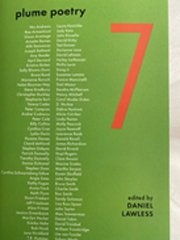RECENT
Sailing to Noon
by Hoyt Rogers
In a lush Caribbean setting, Sailing to Noon depicts a colorful range of characters. Despite her travels throughout the world, Chiara marvels at Canuba, where “magic realism” is everyday life. Amado, her pansexual lover, immerses her in its eclectic culture, natural wonders, and buoyant sensuality. Enthralled by her island reverie, she veers off course when disaster strikes: now she must face the darker side of paradise.
If you missed out on a wild, sexy adolescence or if your friends bore you, read Sailing to Noon. These people—so vital, so different from each other—are the most exciting you’ll ever meet and Hoyt Rogers holographs them into pulsing existence. Did I mention he’s the world’s greatest ventriloquist and can capture the speech of a Sicilian aristocrat or a Caribbean beefcake or a dozen other dialects? You should put this book in a tightly sealed drawer; otherwise it’s so alive it might run away.
—Edmund White
By the end of Sailing to Noon, the reader has a strong understanding of the class, color, and sexual divides and overlaps that roil the island with their many historical complexities. I loved the creation myth and the discussion of it at the center of the novel, as well as the beautiful prose given over to what for lack of a better term we call “nature writing,” as if we aren’t nature: we are, as Hoyt Rogers underlines. The whale watching episodes are wondrous. As to Chiara, Amado, Lamia, and their friends, all the characters are deftly drawn throughout. I particularly appreciated Luz Divina, who grows as Chiara slowly penetrates her mysterious form of possessiveness and love—reading the signs. The cat story is brilliant. I really felt this book: I entered its geography, saw and smelled and moved in it, which is a tribute to its vivid intimacy. But the novel has important dollops of irony and the ludicrous too, without which it would lose its comedic edge and wisdom.
—Siri Hustvedt
On an expansive canvas, Hoyt Rogers has portrayed a sense of life that is freewheeling and all-forgiving. Rich and multifarious, Sailing to Noon has enormous vitality and texture: it is a big performance—the epic myth of Canuba. I greatly admire the atmospherics, tonal shifts, and drive of this book.
—Jonathan Galassi
The Caribbean Trilogy
Though it stands fully on its own, Sailing to Noon is the first volume of The Caribbean Trilogy, three novels by Hoyt Rogers (with guidance from Artemisia Vento and Frank Báez). The second and third books, Midnight at Sea and Return to Day, are forthcoming; a sequel is also in preparation, The Caribbean Farewell.
For further information visit Spuytenduyvil.net or email editors@spuytenduyvil.net
Thresholds
These oceanic meditations on the vicissitudes of existence— love, transience, the relentless immortality of recurrence—are piercing, hypnotic, and deeply moving.
—Jonathan Galassi
Hoyt Rogers has crafted a book of paradox and mystery unlike any other I have encountered in quite a few years, each page— each line—a doorway into a world oddly familiar and utterly new.
—Daniel Lawless
His highly personal relationship with nature, man-made objects, and the unknown worlds around us brings us closer to ourselves ... as if every single thing has lived for the word that’s about to name it.
—Paul Roth
With this magnificent book, Hoyt Rogers has come of age as a significant writer.... He has enriched the language of poets like Oppen, Lowell, and Heller, who would all salute him.
—Anthony Rudolf
With precise imagery, the author benevolently recalls those who have crossed his path.... Thresholds chronicles an ongoing quest for what it means to “have a life.”
—John Taylor
For further information, visit the MadHat website at madhat-press.com or e-mail madhatarts@gmail.com
YVES BONNEFOY The Wandering Life followed by Another Era of Writing Translated by Hoyt Rogers
‘Bonnefoy is well known for obscuring the boundaries between verse and prose just as he often confronts the representational issues that both vex and liberate the so-called sister arts of poetry and visual art.’
—World Literature Today
Yves Bonnefoy was an ardent voyager throughout his life. His constant journeys and sojourns abroad, from Italy and England to America and India, left an indelible mark on his oeuvre. Tellingly, he entitled one of his major books La Vie errante (1993). The Wandering Life now appears in translation for the first time, to celebrate the centenary of the author’s birth. Central to his development, this work crystallizes the traveller motif as a metaphor for aesthetic exploration. It also founds a new poetic technique: that symphonic interweaving of verse and prose which characterises the final twenty years of his creation. In a shorter but equally important companion piece, Another Era of Writing, Bonnefoy reframes the voyage as a philosophical quest, a far-reaching dialogue between language and reality.
Yves Bonnefoy (1923–2016) was one of France’s greatest poets. He received many international awards for his work. In addition to poetry and literary criticism, he published books on art history and translated over a dozen plays by Shakespeare. In 2023, the centenary of his birth, his writings appeared in the prestigious Pléiade series of French authors.
Hoyt Rogers is the author of a poetry collection, Thresholds (2023), and a study of Renaissance verse, The Poetics of Inconstancy (1998). He has published five translations of works by Yves Bonnefoy, including Rome, 1630: The Horizon of the Early Baroque (Seagull Books) which won the 2021 French-American Foundation Translation Prize for Nonfiction.
YVES BONNEFOY Rome, 1630: The Horizon of the Early Baroque, followed by Five Essays on Seventeenth-Century Art; Edited, Translated, and with an Afterword by Hoyt Rogers
'In the title study of this book, Yves Bonnefoy focuses on a pivotal year in the development of the Baroque style. Richly illustrated, his Rome, 1630 reveals how a pan-European movement was born from the achievements of the Italian and foreign artists who congregated in the city during that seminal period. The five supplementary essays in the volume further explore the evolution of seventeenth-century painting, particularly in the works of Elsheimer, Caravaggio, Corona and Poussin. In his afterword, Hoyt Rogers pays homage to the author himself, analyzing the centrality of Baroque art to Bonnefoy's poetry and aesthetics.'
—Seagull Books
'Yves Bonnefoy's Rome, 1630 is a marvel and a triumph, in this lucid English version by Hoyt Rogers. Together with the five further essays on seventeenth-century art which accompany the main text, this work complements the aesthetic meditation of The Arrière-Pays, which I translated for Seagull some years ago. In that book, Bonnefoy concentrates on the Italian Renaissance, whereas here he focuses on the Roman Baroque. Along the way, he pays particular attention to two foreigners then active in the Eternal City, Adam Elsheimer and Nicolas Poussin. In his wide-ranging afterword, Rogers discusses the poet's lifelong fascination with both painters. This is a beautiful volume, of fine quality and pleasantly compact despite its length; rarely has an art book been so comfortable to read. I have re-entered with joy that great "hustle and bustle at St Peter's" in 1630.'
— Stephen Romer, Oxford University, Bonnefoy translator
'I love Hoyt Rogers's afterword to Bonnefoy's remarkable study. It is very personal, free-wheeling, and learnèd, the translator released from bondage to the text. As to the original, it is Yves Bonnefoy at his most recondite and complex and requires a devoted servant, if not the slave implied by my word "bondage." I too am one of Bonnefoy's several devoted servants around the world, and I salute Rogers's translation of this book. As readers, writers and translators, we were and remain inspired by Yves Bonnefoy, poet, writer on art and literature, teacher and friend.'
– Anthony Rudolf, author, publisher, and Bonnefoy translator
'Rome, 1630 is an important meditation on art history, and above all, on the philosophy of art. The long friendship between the author, Yves Bonnefoy, and his translator, Hoyt Rogers was extremely fruitful for both of them. When they met in Paris, the poet was writing his extensive book on the Italian Baroque, first published in 1970. Fifty years later, this outstanding translation by Rogers, combined with that of five further essays by Bonnefoy on the same subject, affords the English-speaking world insights into the very personal "intensity of gaze" of the French author. In his afterword, "Ut poesis pictura," Rogers takes the reader on a brilliant written journey through the "cross-fertilization" of art and poetry in Bonnefoy's work.'
— Cornelia Kemp, art historian, Research Institute of the German Museum
'In 1630, Rome witnessed a breakthrough in art, an advance that intertwined with social, economic, philosophical, and scientific developments. This turning point changed Western civilization forever. Yves Bonnefoy accompanies us in exploring this shift, leading us on a poetic journey through the history of art. Not only is the translation by Hoyt Rogers masterly, recapturing the essential poetic vigor of the author, but the illustrations are also exceptional. In his afterword to the book, Rogers gives the reader an interpretative key to Bonnefoy's work that grants us an intimate and familiar vision of the author. With this addition, the volume becomes a conversation like the many Bonnefoy and Rogers exchanged over the course of their friendship. And this time, we are more than happy to participate.'
— Michele Casagrande, arts administrator, Milan
Winner of the 2021 French-American Foundation Prize for Translation (Nonfiction)
Forthcoming
Midnight at Sea, a novel by Hoyt Rogers (Spuyten Duyvil, 2024), the second volume of The Caribbean Trilogy (with guidance from Artemisia Vento and Frank Báez); Canvases, a cycle of prose poems by Hoyt Rogers (Mudlark Press, 2024); and Will and Other Poems by Marco Simonelli, translated from the Italian by Hoyt Rogers (Spuyten Duyvil, 2024)
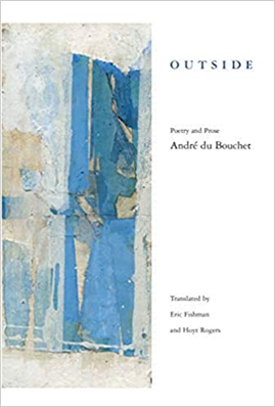
Outside
A major poet, translator, and art critic, André du Bouchet (1924–2001) follows a rich tradition of avant-garde French writers whose work eludes being placed into any single school of thought... The new collection Outside, from Bitter Oleander Press, now joins Yale University Press's 2014 release Openwork as the English-language point of reference for du Bouchet. The translation in Outside is an impressively seamless collaboration between Hoyt Rogers, who also translated Openwork with Paul Auster, and Eric Fishman... The dialectical play of inside/outside that repeats throughout this bilingual text is enriched by Fishman and Rogers's choice to incorporate du Bouchet's "Notes on Translation..." A successful collaboration on several fronts, Outside allows the reader to see the white of the page in a different light.
— Michael Overstreet, in the Los Angeles Review of Books
'Outside is the name that Eric Fishman and Hoyt Rogers have chosen to give to their new selection and translations of du Bouchet's poetry and prose... So much depends on all the white space between the words. "To draw a correlation with music," the translator Hoyt Rogers explains, "silence will take on a thousand different nuances, according to the context..." When you look through a window from the outside, you're not supposed to notice the mullions and the sills, but straight into and past the transparent glass... Fishman and Rogers have translated the lights as well as the window frames. Their workmanlike English captures the careful carpentry of the original... It admirably echoes the energy and momentum of the French... The two translators have written separate, concurring introductions to the work, Fishman's as a foreword, Rogers's as an afterword. Both are informative; they provide both context and analysis.'
— Jim Kates in ArtsFuse
'Following upon Hoyt Rogers and Paul Auster's translation of André du Bouchet's Openwork (Yale University Press, 2014), this fascinating new translation, Outside — by Rogers and Eric Fishman — draws attention once again to a seminal figure in postwar French poetry... In his afterword, Rogers offers a stimulating contrast between du Bouchet and Wallace Stevens, gives some insight into du Bouchet's non-French literary background (which comprised equally unexpected youthful exchanges with James Merrill and Richard Wilbur), and indicates analogies with the objectivist poet George Oppen... Rogers notes that "given his passion for shifting shapes, du Bouchet produced audacious translations from the English, Russian, and German; though he naturally required that translations should be 'faithful to the originals,' he invited readers to see the semantic disjunctions between one language and another as opportunities rather than defects..." In their individual translations, Rogers and Fishman have themselves been resourceful when rendering du Bouchet's polysemous imagery... Complementing the aforementioned Openwork, this new book offers a representative bilingual sampling (with a special emphasis on the poet's important notebooks), ranging over five decades...'
— John Taylor, in Reading in Translation
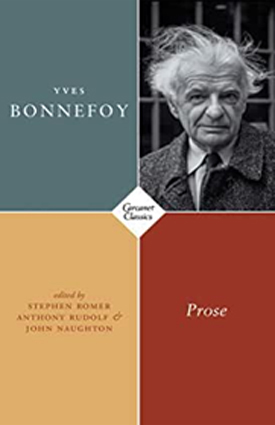
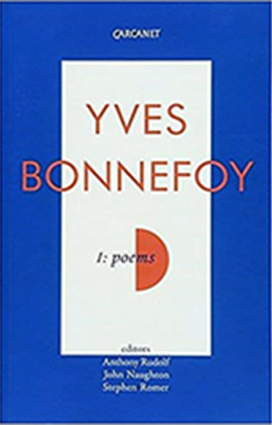
The Carcanet Press two-volume reader of Yves Bonnefoy's works, edited by John Naughton, Stephen Romer, and Anthony Rudolf, with numerous translations by Hoyt Rogers
1: Poems (2018)
'Bonnefoy's publishing career spanned 63 prolific years as poet, prose writer and acclaimed translator from the English; he was involved right up until his death in the editing of the Carcanet collection here under review. This volume includes extracts from Bonnefoy's poetic prose, and selections from the work of the last twenty years of his life. We have the evocative sequence 'The House where I was Born' (tr. Hoyt Rogers), which fuses all the different important places of his childhood and adulthood together and gives us a rare glimpse of his father, who died when Bonnefoy was thirteen... 'The Great Voice' was published when he was 89; this prose piece is a recollection of a woman with evident operatic training whom he heard singing in a modest church service in England. It again sets off the cycle of his longing for 'that other country': 'What is a voice when it has turned into song?...What is a fiction that seeks to mesh with the immaterial whorls of this balcony between earth and sky?' [tr. Hoyt Rogers]... Carcanet's volume regroups translations by a variety of poets and writers: John Naughton, Stephen Romer, Anthony Rudolf, Beverley Bie Brahic, Emily Grosholz, Galway Kinnell, Richard Pevear, Hoyt Rogers and Susanna Lang. The poems are given facing page with the originals and this allows useful comparison to be made with the French.'
— Hilary Davies, in the Times Literary Supplement
'The editors and translators have done a wonderful job in the selection and simplicity of the selections. This is a book to appeal to both admirers of Bonnefoy's work and the general reader who is looking toward engaging with a lifetime of poetic output.'
— Andrew Taylor, in Stride Magazine
2: Prose (2020)
'Yves Bonnefoy (1923-2016) is a poet readers return to for major feats of imagination and consolation. Less well known to English readers is his prodigiously assorted prose, ranging from art history to the imaginative hinterland of L'Arrière-pays. So Yves Bonnefoy: Prose (Carcanet), a selection expertly and economically edited by Stephen Romer, Anthony Rudolf and John Naughton, and translated by many distinguished hands, is an indispensable read. For Bonnefoy, poetry is "born of terror". Its job is "to re-establish openness and this matters because of what such openness to thought and feeling offers us. Not least, hope: "At the moment when so much night is gathering, could we be on the verge of the true light?"'
— Fiona Sampson, in The Guardian
'Bonnefoy's essays on Giacometti and Poussin [tr. Hoyt Rogers], as well as his astonishing understanding of Mallarmé and Yeats, are all worth reading attentively... They are always written with the alertness and consciousness of a working poet, in the manner of Seferis or Heaney. Reading them always adds not only to our knowledge but to our courage as poets.'
— Thomas McCarthy, in the Carcanet Press Blog

YVES BONNEFOY SECOND SIMPLICITY
Selected, translated, and introduced by Hoyt Rogers
'Second Simplicity is a handsome edition of Bonnefoy's recent work . . . a stunning presentation of a major poet.'
— Jim Kates, The Arts Fuse
'In these translations, Rogers is not looking to turn back the corners of the originals, gather up the bits from which they are assembled, and reassemble them on a new chassis. He experiences the poems and with his wind, fire, water, and art he crafts sibling poems.'
— Nicole Zdeb, The Quarterly Conversation
'As the foreword to his lucid and responsible translations of Yves Bonnefoy's late work reveals, Hoyt Rogers has mastered the grand cumulus of ulterior translation, criticism, commentary, and biographical circumstance which so formidably confronts, and possibly daunts, the interpreter as well as the common reader, so that indeed Second Simplicity is for seasoned practitioners of this master not only a sort of precocious capstone of the still-rising edifice of the Great Work, but for newcomers to Bonnefoy an excellent, even an ideal, entrance to this writer's vast creation.'
— Richard Howard
'The final exemplar of a poetic legacy that begins with Baudelaire and Mallarmé, Yves Bonnefoy is the last figure standing in a monumental tradition that has shaped modern European literature. This lovingly supple and authoritative presentation by Hoyt Rogers of the rich, endlessly rewarding later phase of the great poet's work forms an invaluable contribution to our own poetry.'
— Jonathan Galassi
'Second Simplicity is a magnificent collection by Yves Bonnefoy, one of the world's most important poets, in brilliant translations by Hoyt Rogers. The poems are dramatic and startling, apparently simple as falling snow and actually deep as life and time. Bonnefoy searches for truths beyond language, each truth an adventure in seeing the world anew. His vision is profound and yet bright with promise, for, as he observes, "Day is breaking, even beyond time."'
— Grace Schulman

HOYT ROGERS THE POETICS OF INCONSTANCY
A study of Renaissance verse; erratum p. 166, 'Scève and Labé' should read 'Scève and Du Guillet.'
'The transformation of Late Petrarchism from its earlier stages reflects a profound shift in cultural values—a "crisis of the Renaissance" that generated new perspectives in poetic theory and practice. Broadly, this book identifies a distinctive "poetics of inconstancy" that came to the fore at the end of the sixteenth century and pervaded the love verse of the age. …The book takes as its point of departure a single poet: Etienne Durand. Because of his frequently anthologized "Stances à l'Inconstance," he is often singled out as "the poet of inconstancy." However, The Poetics of Inconstancy identifies the theme of universal change as a hallmark of his contemporaries as well—the signal of a stylistic revolution that heralded the end of Renaissance verse.'
— Chapel Hill/University of North Carolina Press
'Par des explications de textes, minutieuses et très éclairantes, Hoyt Rogers invite au repérage des thèmes et des figures familiers pour prouver, en cette Renaissance finissante, des stratégies de la déviation et de la surprise dans une poésie brillante et en apparence répétitive, conduite à osciller entre l'excès de sens et le vide sémantique.'
— Danièle Duport, Revue d'Histoire littéraire de la France
'In the English-speaking world, this is the first study to link French Renaissance poetry with the Mannerism prevalent in European art during the late sixteenth century. With sure-footed erudition, Rogers traces the gradual decline of Petrarchan idealism—focused on a single, deified beloved like Laura or Délie—and the simultaneous rise of amorous inconstancy in Ronsard and his successors. His book concludes with an illuminating discussion of parallels between literary Mannerism in France and similar trends throughout Europe, epitomized by the thematic and stylistic multivalence of Shakespeare.'
— Roy Rosenstein

YVES BONNEFOY THE DIGAMMA
Translated and introduced by Hoyt Rogers
'Heralded as one of France's greatest poets, Yves Bonnefoy has been dazzling readers since the publication of his first book in 1953… His latest book of poetry in prose, The Digamma, fits wonderfully into his impressive oeuvre, offering his signature style of simple but powerful language... The collection includes haunting reflections on Poussin, Shakespeare, children, nature, vanished cultures, and the origins of art.'
— Seagull Books/University of Chicago Press
'You have not only been for me the intrepid reader who plunges daringly into the text to turn over the soil beneath it, to expand its meanings and develop its allusions, you have also been, and you remain, the one who reads the writer you are translating in such a generous, trusting way, that the author's work can blossom, with flowers not always obvious… within the language of origin. This trustfulness has complemented your rigorous demands during all the time you have been translating my poems—and my prose-pieces as well, that "poetry in prose" which sparks such a quandary for English, but which has spurred you to so many fitting and graceful solutions.'
— Yves Bonnefoy, 'A Conversation with Hoyt Rogers,' Yale University Press
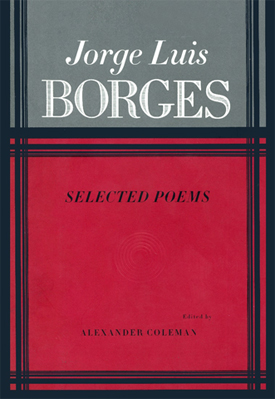
JORGE LUIS BORGES SELECTED POEMS
Translated by Alastair Reid, Hoyt Rogers, Mark Strand, and others; edited by Alexander Coleman
'Though universally acclaimed for his influential fictions, Jorge Luis Borges always considered himself first and foremost a poet. A decade before writing his earliest stories, Borges published his first book of poems. And even in that precocious debut, the twenty-four-year-old poet claimed for himself the principal themes that would preoccupy him for the next half century: the cult of his ancestors and his "mysterious habit called Buenos Aires"; the enigma of time and the many yesterdays of history; the metaphysics of Schopenhauer and Berkeley; the now-familiar mirrors, mazes, and swords.
'This new bilingual selection brings together some two hundred poems—the largest collection of Borges' poetry ever assembled in English, including scores of poems never previously translated. Edited by Alexander Coleman, the selection draws from a lifetime's work—from Borges's first published volume of verse, Fervor de Buenos Aires (1923), to his final work, Los conjurados, published just a year before his death in 1986. Throughout this unique collection the brilliance of the Spanish originals is matched by luminous English versions rendered by a remarkable cast of translators: Willis Barnstone, Alexander Coleman, Robert Fitzgerald, Stephen Kessler, Kenneth Krabbenhoft, Eric McHenry, W. S. Merwin, Alastair Reid, Hoyt Rogers, Mark Strand, Charles Tomlinson, Alan S. Trueblood, and John Updike.'
— Viking Centennial Edition
'A generous volume of the poetry of Borges has now been published by Viking, edited by Alexander Coleman and translated by various hands… His poetry is deeply involved in the fictions, as one discovers in reading through his Selected Poems, where his abiding themes (the puzzle of identity, the illusory nature of the physical universe, the alluring yet maddening nature of love) and symbols (the mirror, the labyrinth, the tiger, the game, the double) are summoned and repossessed.'
— Jay Parini, The Nation
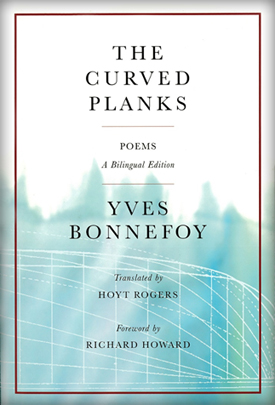
YVES BONNEFOY THE CURVED PLANKS
Translated by Hoyt Rogers, with a foreword by Richard Howard and two essays by Hoyt Rogers
'Yves Bonnefoy is one of the rare poets in the history of literature to have sustained the highest level of artistic excellence throughout an entire lifetime—more than half a century now, and still counting. These recent poems, superbly translated by Hoyt Rogers, attest to his enduring greatness.'
— Paul Auster
'I have been deeply impressed, reading Hoyt Rogers' translations of Yves Bonnefoy's Les Planches Courbes. They are much more than English versions of these strong and delicate originals—they are recreations that become distinct poems in English, a true and loving homage to their source.'
— Alastair Reid
'This bilingual edition of The Curved Planks sets the French texts alongside English versions by the noted translator Hoyt Rogers, who has collaborated closely with Bonnefoy in crafting poems that re-create the freshness and vision of the originals. The volume also includes a preface by the renowned poet and critic Richard Howard and essays by the translator that situate The Curved Planks in the author's body of work. All assist in introducing the English-language reader to Bonnefoy's profound poetic gift.'
— Farrar, Straus and Giroux
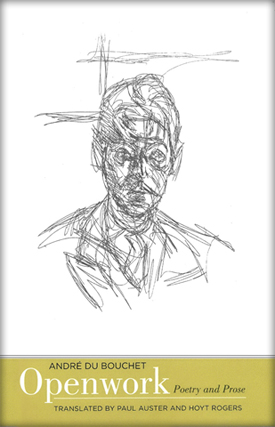
ANDRÉ DU BOUCHET OPENWORK
Selected, translated, and presented by Paul Auster and Hoyt Rogers; cover portrait and frontispiece by Giacometti
'This bilingual selection of poems and notebook jottings by André du Bouchet (1924-2001) is an exciting addition to contemporary French poetry available in translation. Openwork includes many poems that have remained unknown in English and, above all, shows the simultaneous coherence and evolution of the poet's work from the 1950s through his last years. The introduction by Hoyt Rogers is the most far-reaching essay on du Bouchet I have ever read in English.'
— John Taylor, The Arts Fuse
'The translations themselves are marvelous… Here we have a poet whose lines often contain worlds… a master of the image… a pure pleasure to read.'
— Micah Mattix, Books and Culture
'In this finely edited selection of the poetry and prose of André du Bouchet, two distinguished translators, Paul Auster and Hoyt Rogers, enable our eyes and ears to absorb a profoundly authoritative language world of majestic beauty. Fragmentary, stripped down, elliptical, it presents an unmistakable individual in an unmistakable landscape.'
— Anthony Rudolf
'Rogers and Auster are vivid and eloquent translators… for an introduction to André du Bouchet in English, begin here.'
— Chris Miller, PN Review
Longlisted for the 2015 Best Translated Book Award
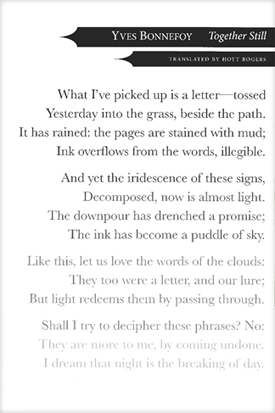
YVES BONNEFOY TOGETHER STILL
Translated by Hoyt Rogers with guidance from Mathilde Bonnefoy; afterword by Hoyt Rogers
'Together Still is Yves Bonnefoy's final poetic work, composed just months before his death. The book is nothing short of a literary testament, addressed to his wife, his daughter, his friends, and his readers throughout the world. In these pages, he ruminates on his legacy to future generations, his insistence on living in the present, his belief in the triumphant lessons of beauty, and, above all, his courageous identification of poetry with hope.'
— Seagull Books/University of Chicago Press
'"…And that light, / When it stands still, is happiness." Maybe that light is happiness, but light, in Bonnefoy's personal aesthetic lexicon, is rarely so stable, so still. Elsewhere in this light-filled book we also glimpse "the thing still awaiting its name." Translator Hoyt Rogers rightly singles out the sonnet sequence "Together Music and Memory" as Bonnefoy's finest.'
— Kurt Heinzelman, World Literature Today
'Hoyt Rogers displays extraordinary skill as a translator of this oeuvre, given the precision and imaginative daring of his choices, his metrical ear, and his multilayered knowledge of Yves Bonnefoy's work.'
— Marilyn Hacker
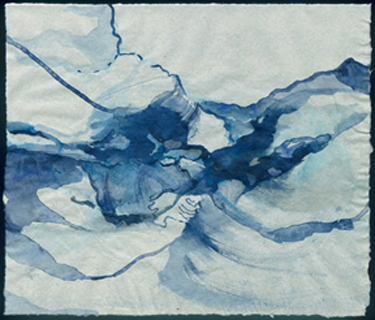
(Mary Heebner, Snow series)
